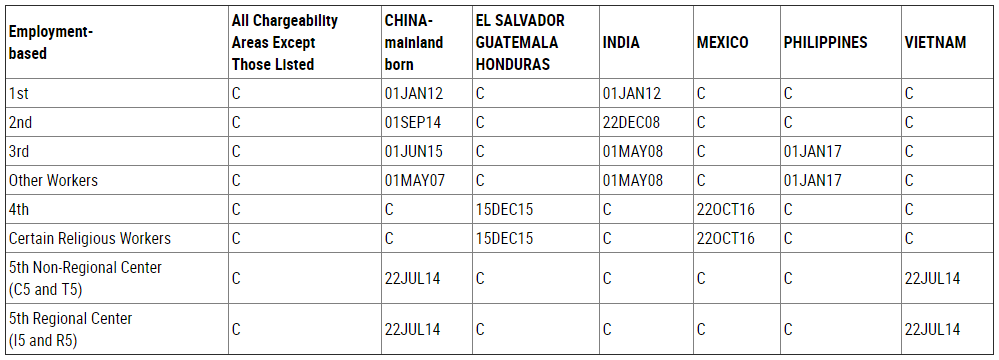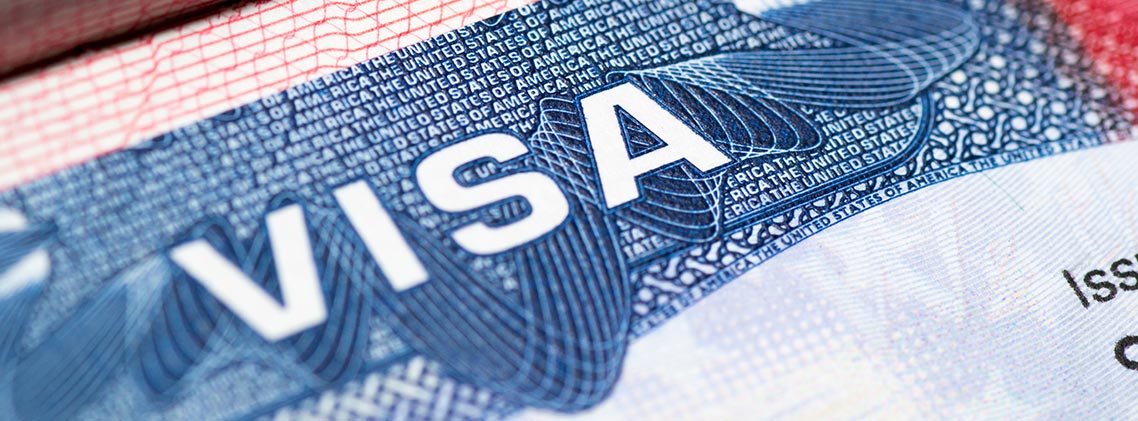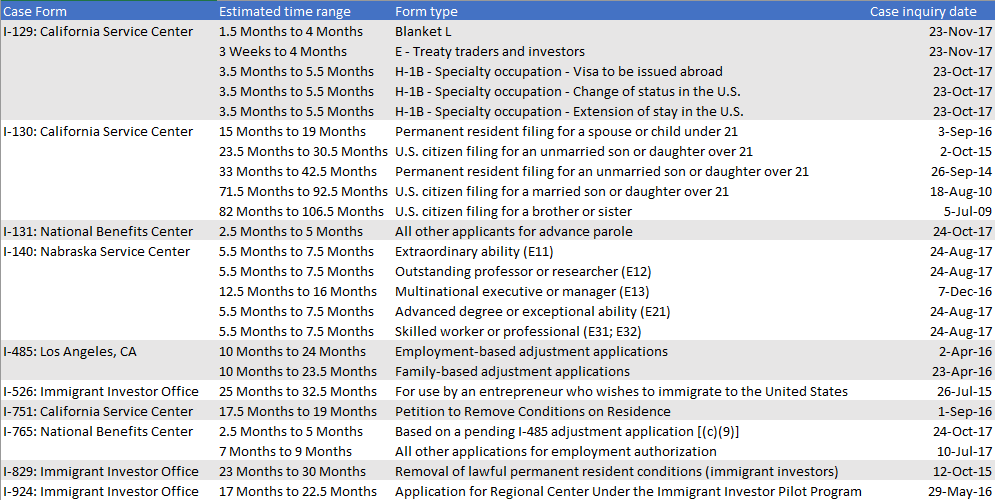In a November 2017 article, the Washington Post described “How Trump is building a border wall that no one can see”: how the Trump Administration was, “in a systematic and less visible way . . . following a blueprint to reduce the number of foreigners living in the United States — those who are undocumented and those here legally — and overhaul the U.S. immigration system for generations to come.” A month later, the New York Times published a similar article on Trump Administration efforts to reduce legal immigration using existing executive authorities. The latest guidance from U.S. Citizenship and Immigration Services (USCIS) regarding when USCIS will issue a Notice to Appear (NTA) is another step in that direction, and an even more problematic one than it might appear to be at first glance.
USCIS recently announced in a Policy Memorandum, PM-602-0050.1, that it is changing the way it decides whether to issue an NTA placing someone into removal proceedings in immigration court. In all cases other than those involving Deferred Action for Childhood Arrivals (DACA), which is the subject of separate NTA guidance, this new memorandum supersedes the previous USCIS NTA guidance that had been in effect since 2011.
The new NTA guidance in PM-602-0050.1 is said to be intended to implement the Trump Administration’s enforcement priorities as set out in the January 2017 Executive Order “Enhancing Public Safety in the Interior of the United States.” It lists a number of scenarios in which an NTA will generally be issued absent high-level approval to do otherwise, but perhaps the most significant is one buried at the bottom of page 7 of the memorandum, after discussion of various scenarios relating to fraud or criminal cases. The memorandum states there that “USCIS will issue an NTA where, upon issuance of an unfavorable decision on an application, petition, or benefit request, the alien is not lawfully present in the United States.” This encompasses a wide variety of scenarios.
The new guidance’s apparent conversion of USCIS into an immigration-enforcement entity, contrary to the agency’s originally-intended mission as a benefits-granting entity distinct from the enforcement activities of other Department of Homeland Security components, has drawn criticism from the American Immigration Council and the American Immigration Lawyers’ Association, among others. The criticism has understandably been from a broad, overarching perspective, and the new NTA policy is indeed deeply problematic from that perspective. Some of the practical implications of the new policy, however, are also worth exploring in more detail.
By indicating that an NTA will be issued when, “upon issuance of an unfavorable decision on an application, petition, or benefit request, the alien is not lawfully present,” the new guidance implies that it will not matter if the person issued the NTA was lawfully present until just prior to the unfavorable decision. That is, if an applicant for extension of nonimmigrant stay, change of nonimmigrant status, or adjustment of status was protected from the accrual of unlawful presence by the pendency of their application, but became unlawfully present the day that the denial was issued and mailed, it would seem that an NTA will follow.
Given the substantial processing times for many applications for change of status or extension of stay, this criterion could capture a great many nonimmigrants who in good faith applied to change to a different status, or extend their stay, well before their initial period of authorized stay expired. According to the USCIS webpage regarding processing times, for example, an I-539 application for extension of stay or change of status which is processed at the USCIS Vermont Service Center is estimated to take between 9 months and 11.5 months. So even someone who applies 9 months before the expiration of their initially authorized stay likely will not receive a decision before that period expires, and will thus be unlawfully present upon the issuance of an unfavorable decision on their application and subject to an NTA under the new USCIS policy. Indeed, if a tourist or business visitor admitted for 6 months wishes to apply for an extension of stay or change of status, it would be mathematically impossible to do so far enough in advance to avoid this consequence in the event of a denial, because the projected processing time is longer than their entire initial period of admission!
Petitions and applications for extension of stay or change of status could also be denied for reasons which the nonimmigrant in question may not have anticipated. As my partner Cyrus Mehta has pointed out, the new NTA guidance could apply, for example, to an H-1B skilled worker affected by new stricter USCIS policies regarding H-1B approvals, if the denial of an application for extension of stay comes after the expiration of the worker’s prior status. It could also apply to an F-1 student who is the innocent victim of a mistake by a Designated School Official (DSO), or a B tourist or business visitor whom a USCIS officer decides has not given a sufficiently compelling explanation of why they want to remain for an extended but still temporary period of time.
Even one who has applied in good faith for a change of status or extension of stay, expecting it to be granted, may therefore under the new policy be placed in removal proceedings. Subjecting well-meaning temporary workers, students, tourists and other nonimmigrants to immigration court proceedings, and even potential detention, just because USCIS disagrees with the merits of their application for extension of stay or change or adjustment of status, is indicative of a malicious attitude towards noncitizens that we have also seen in other contexts from this Administration.
Because of what is likely to happen next in many such cases, this new policy is not merely malicious, but counterproductive as well, even when evaluated according to the goals that the Administration is presumably trying to accomplish (unless the Administration is more interested in harassing noncitizens, and generally deterring them from coming to the United States, than in encouraging timely departure following the denial of particular applications). Initial hearings in removal proceedings often take several months to schedule even with the current backlog at the immigration courts, which will presumably get worse, not better, under the new NTA policy. So our hypothetical denied applicant for change of status or extension of stay, who may have been planning to depart from the United States shortly after receiving the denial, will now be instructed to await an immigration court hearing in several months. If he or she chooses to leave the United States in the meantime, and is unable to return for the removal hearing, this could result in a five-year bar to returning to the United States, pursuant to section 212(a)(6)(B) of the INA, which provides that “Any alien who without reasonable cause fails or refuses to attend or remain in attendance at a proceeding to determine the alien’s inadmissibility or deportability and who seeks admission to the United States within 5 years of such alien’s subsequent departure or removal is inadmissible.” An order of removal issued at such a hearing could also potentially lead to inadmissibility for ten years under section 212(a)(9)(A) of the INA, although the text of the statute (which refers to seeking admission “within 10 years of the date of such alien’s departure or removal”) suggests that this second bar ought not to apply where the person has already left at the time of the removal order (and unlike section 212(a)(6)(B) inadmissibility, 212(a)(9)(A) inadmissibility can at least be overcome by a grant of permission to reapply for admission under section 212(a)(9)(A)(iii) of the INA). Thus, the statute provides a strong incentive for our hypothetical denied applicant, having been placed in removal proceedings, not to leave the United States before his or her hearing.
As long as the immigration court proceedings take place within one year of the denial of a timely-filed application for change of status or extension of stay by one who has not worked without authorization, our hypothetical denied applicant is likely to be better off staying in the United States to attend his or her hearing, so as to avoid the above-discussed types of inadmissibility, and then seeking voluntary departure under section 240B of the INA. (The three-year bar for those unlawfully present for more than 180 days but less than one year, under section 212(a)(9)(B)(i)(I) of the INA, only applies by its terms to those who departed “prior to the commencement of proceedings under . . . section 240” and so does not apply to someone placed in removal proceedings, though the ten-year bar for one year of unlawful presence under section 212(a)(9)(B)(i)(II) would apply.) Thus, in this instance, the virtual wall will operate to keep in the United States for a substantial additional period of time someone who may have been perfectly willing to leave on their own shortly after the denial of their application for change of status or extension of stay, had they not been placed in removal proceedings.
In the presence of ever more outrageous immigration policies from the Trump Administration, such as the separation of children from their parents and the recent news that the Administration will likely fail to meet a court-ordered deadline to reunify separated children under 5 with their parents, there is a risk that more subtle anti-immigration measures may be overlooked. As with other Trump Administration malfeasance, however, it is important not to succumb to such “outrage fatigue”. The fact that the Administration has done even worse things does not mitigate the callous and counterproductive nature of a decision to place many well-meaning nonimmigrants in removal proceedings, and effectively prevent them from leaving the United States in a timely fashion after denial of an application even if they wish to do so.











 RSS Feed
RSS Feed
